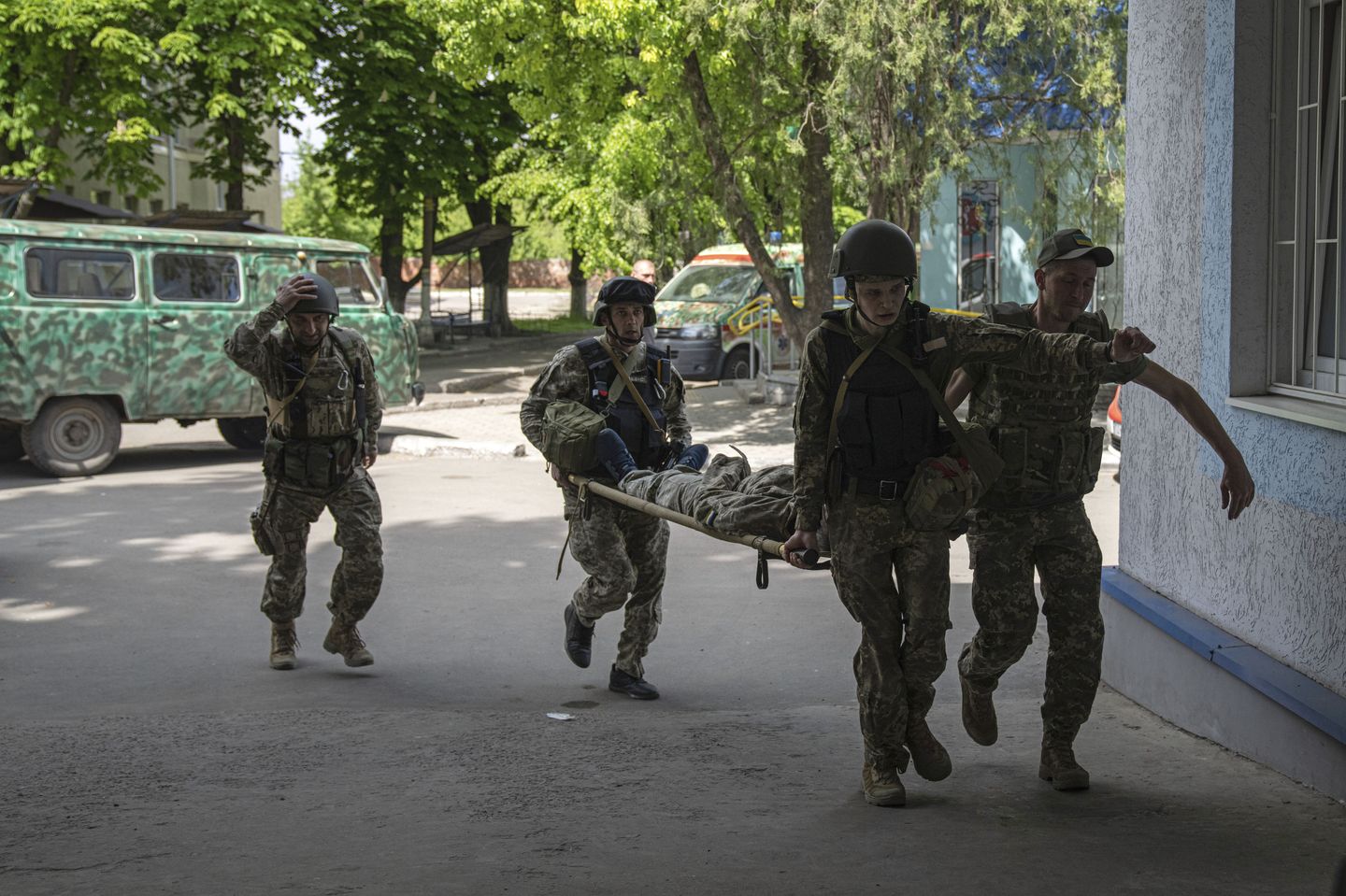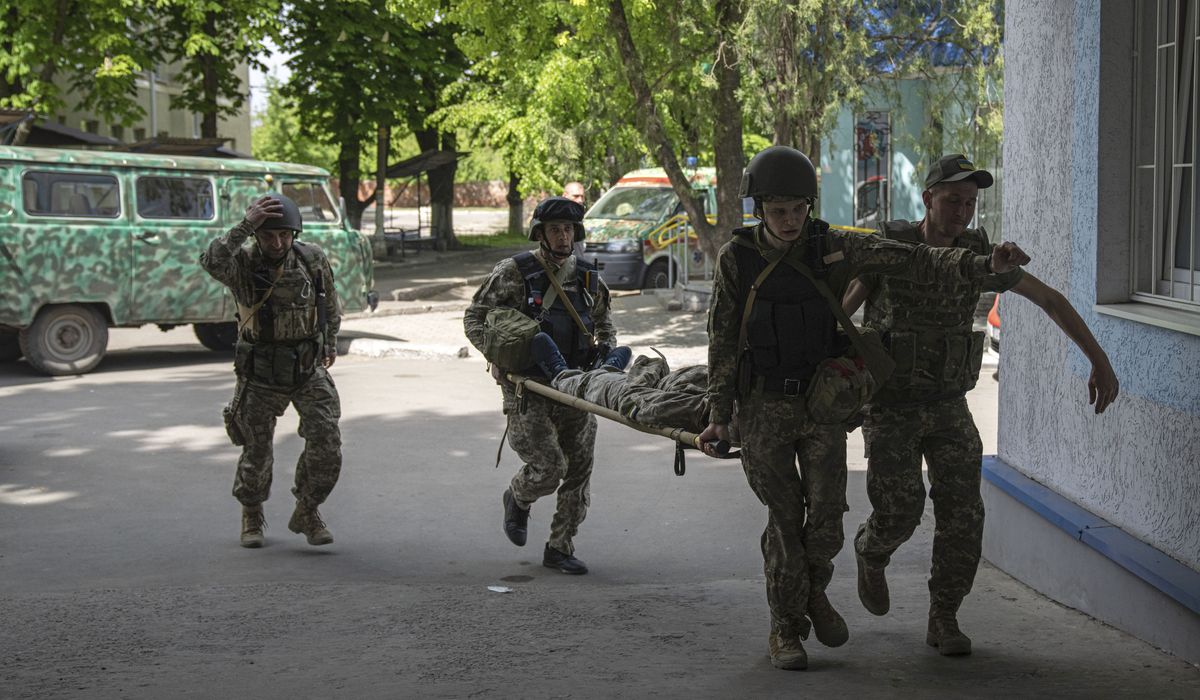

Invading Russian military forces remain bogged down in Ukraine and have shifted to a war of attribution, two senior U.S. intelligence officials told Congress on Tuesday.
The next two months are expected to be intense fighting as Russian forces seek to press the war in eastern Ukraine after having abandoned a campaign targeting Kyiv and other major Ukrainian cities, the officials said.
“The Russians aren’t winning and the Ukrainians aren’t winning, and we’re at a bit of a stalemate,” Army Lt. Gen. Scott Berrier told a Senate Armed Services Committee hearing on global threats.
Director of National Intelligence Avril Haines, testifying with the three-star general, also said Russian forces are struggling in efforts to take over Ukraine since the campaign began Feb. 24 and are regrouping to focus on battles in the eastern part of the country.
“The Russians met with more resistance from Ukraine than they expected and their own military performance revealed a number of significant internal challenges, forcing them to adjust their initial military objectives, fall back from Kyiv and focus on Donbas,” Ms. Haines said.
However, Ms. Haines said intelligence analysts do not believe the current battle in Donbas will end the conflict, with Russian President Vladimir Putin determined to drag out the fighting, and still has the ultimate goal of capturing control of the entire country.
“We assess President Putin is preparing for a prolonged conflict in Ukraine during which he intends to achieve his goals beyond Donbas,” she said.
Expanding Russian control of key areas of eastern Ukraine is “increasingly unlikely” in the coming weeks and with Ukrainian forces unlikely to prevail, the conflict is evolving into a war of attrition, Ms. Haines said.
Gen. Berrier also described the conflict as “attribution warfare” that is more advantageous to the Ukrainian military.
“I think the Ukrainians have it right in terms of grit and the defense of their nation,” he said, adding that Russian military conscripts brought in from remote regions do not have the same fighting spirit.
Ms. Haines said Mr. Putin is expecting U.S. and Western resolve to support the Ukrainians will weaken as energy prices increase.
“Putin faces a mismatch between his ambitions and Russia’s current conventional military capabilities, [which] likely means the next few months could see us moving along a more unpredictable and potentially escalatory trajectory,” she said. Flash points for escalation in the coming weeks could involve Russian military efforts to halt Western military assistance and retaliation for sanctions.
Regarding threats of a nuclear escalation voiced by some top Russian officials, Ms. Haines said Moscow intends to continue using threats of nuclear attacks to deter U.S. and western aid to Ukraine.
Moscow also could hold another large-scale nuclear forces exercise and the dispersal of nuclear missile submarines as a saber-rattling move, although Mr. Putin would only authorize a nuclear strike if he perceived an “existential” threat, she added.
